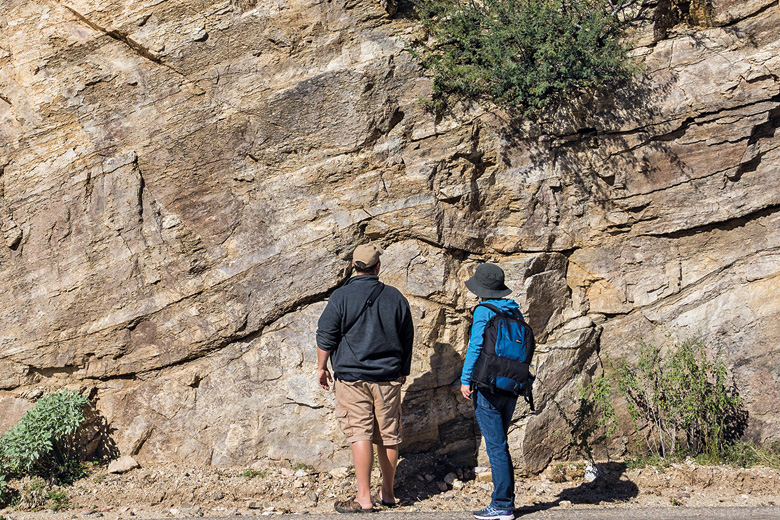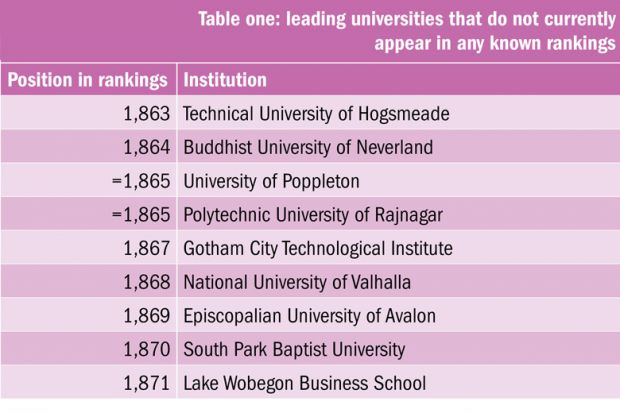Where in the world is Poppleton?
What position does Poppleton hold in the new Times Higher Education World University Rankings? One disgruntled member of staff complained to The Poppletonian that while she knew the exact position in the table occupied by the Swedish University of Agricultural Sciences and the Pontifical Catholic University of Paraná, she had no idea where her very own university could be found.
Matters have now been clarified by our Head of Rankings, Bill Gusset, who explained that although this year’s THE World University Rankings now included 980 institutions from 79 countries, it currently failed to accommodate those distinctive institutions such as Poppleton that technically fell somewhat below the 980th position.
However, Mr Gusset said that he’d been generously provided with access to the rankings of such other universities and was delighted to report that Poppleton had moved up five whole places from its 2015-16 ranking.
“As you can see from the table below,” said Mr Gusset, “our esteemed university now ties for 1,865th place with the prestigious Polytechnic University of Rajnagar and stands three whole places above the well-respected Episcopalian University of Avalon.”
Although Poppleton’s new position was to be welcomed, Mr Gusset warned against over-confidence. “University stock can go down as well as up. It’s worth remembering that only a year ago many people in the sector were lauding the advances being made by the Secular University of Gomorrah.”

Roll over Beethoven
Our university has responded forcefully to the news in The Times and Sunday Times’ Good University Guide that geology students easily lead the way when it comes to graduate earnings.
“We decided that this unfortunate state of affairs could only be remedied by rapid action,” explained Janet Fluellen, our Director of Curriculum Development. “We have accordingly inserted a compulsory geology component into all our existing undergraduate degrees in the hope of boosting graduate employment opportunities.”
But had students welcomed the geology element?
“There have been some concerns,” admitted Ms Fluellen. “One philosophy student said that he had not realised geology would be quite so down to earth, while an English student was told that the title he’d chosen for his essay on plate tectonics – “The Earth Moved” was “over-literary”. There was also a psychology student who’d been upset that his original essay “Stalactites: a Freudian perspective” had received a borderline fail from his geology tutor. Other students had focused on the problem of adaptation. One mathematics undergraduate spoke of being stuck “between a hard place and a rock” while others pointed out that while all subjects had their faults, it was only geologists who specialised in them.
Some, though, expressed pleasure at encountering the new discipline. “Igneous is bliss,” wrote one Classics student, adding in jocular fashion, “Have a gneiss day”.
So had the experiment been a success? “It’s probably too early to say,” admitted Ms Fluellen. “It may be that the geology component will not prove sufficient to boost graduate employment. In the future, I may have to be a little bolder.”
Register to continue
Why register?
- Registration is free and only takes a moment
- Once registered, you can read 3 articles a month
- Sign up for our newsletter
Subscribe
Or subscribe for unlimited access to:
- Unlimited access to news, views, insights & reviews
- Digital editions
- Digital access to THE’s university and college rankings analysis
Already registered or a current subscriber?




